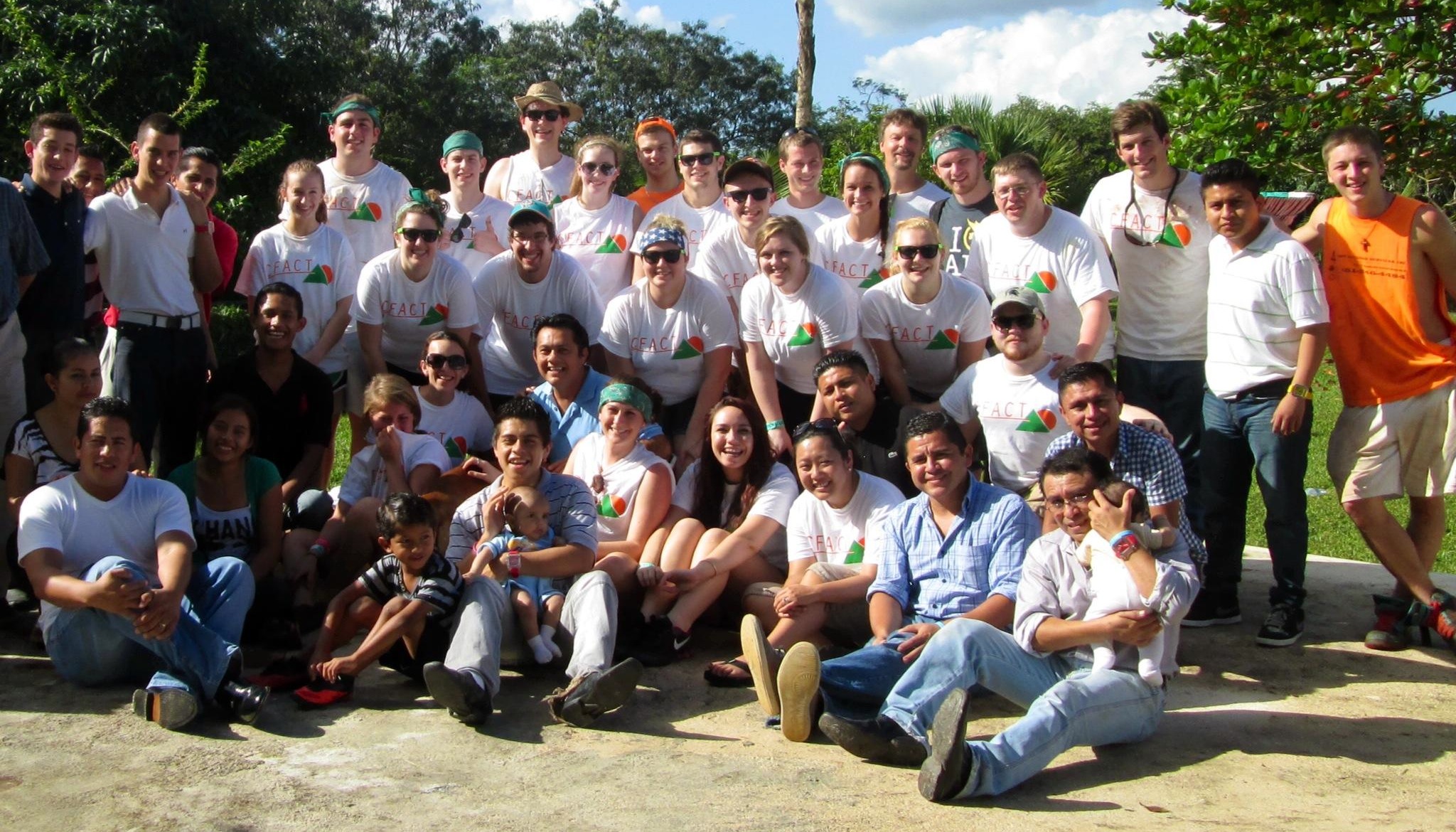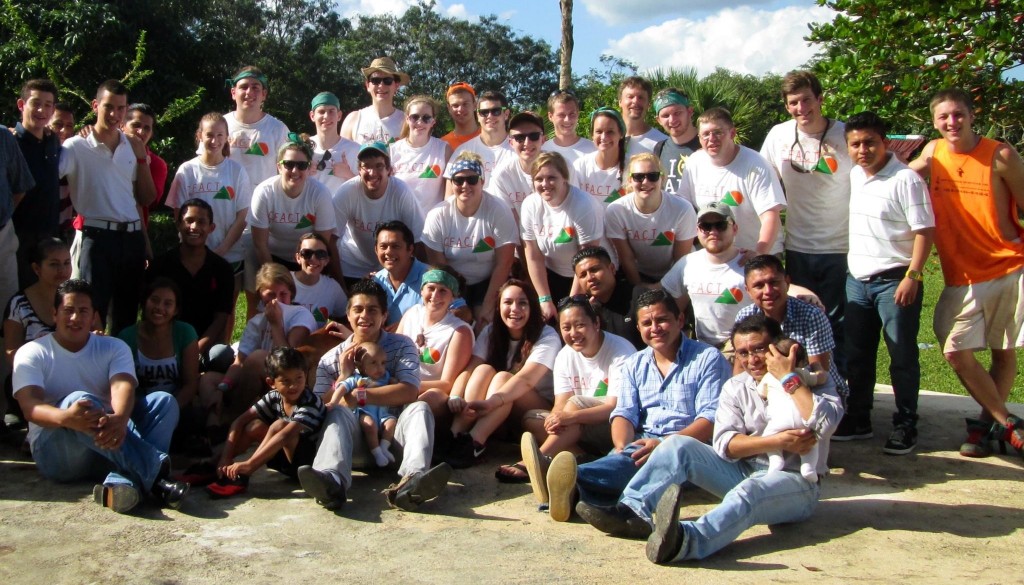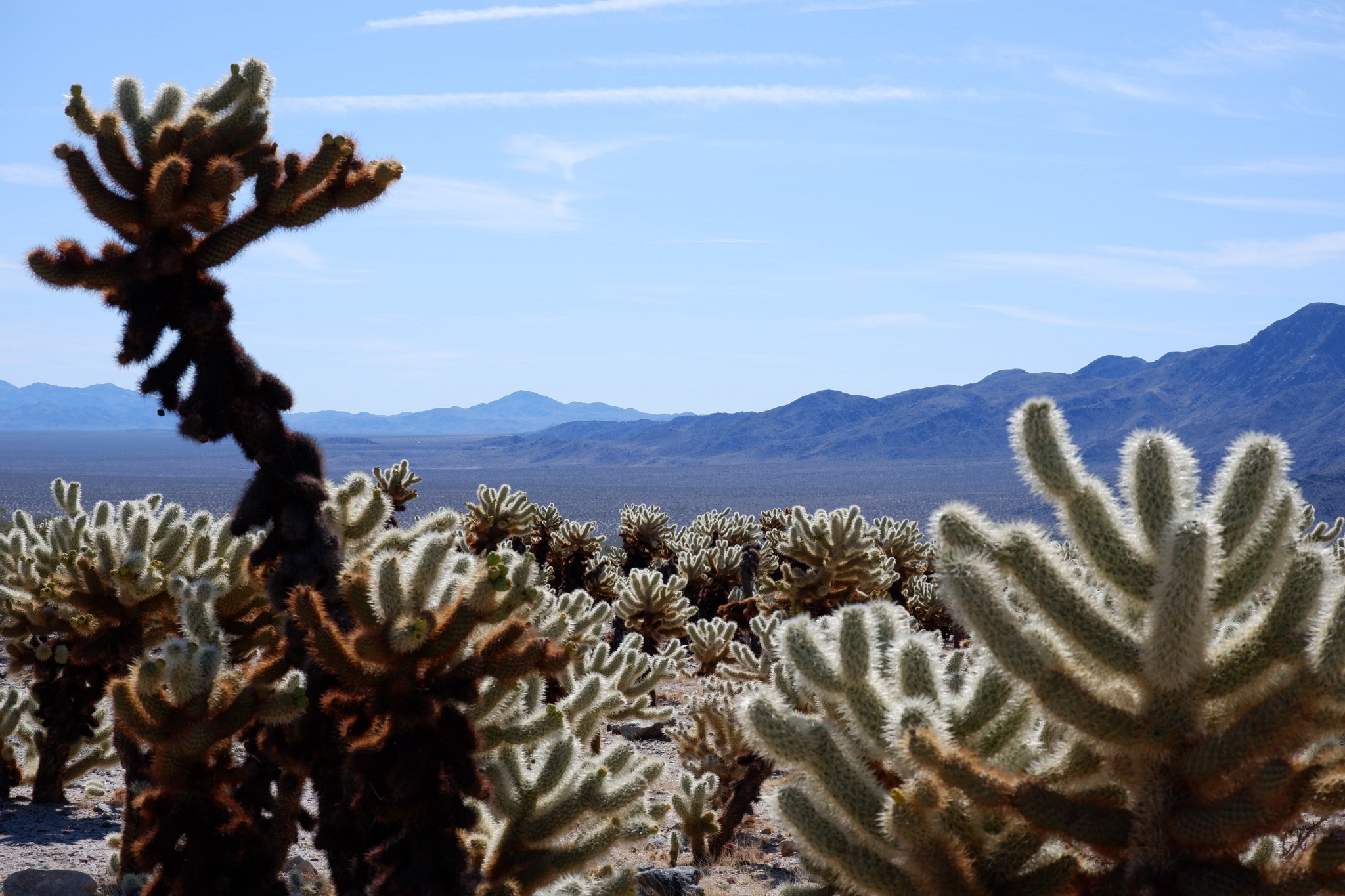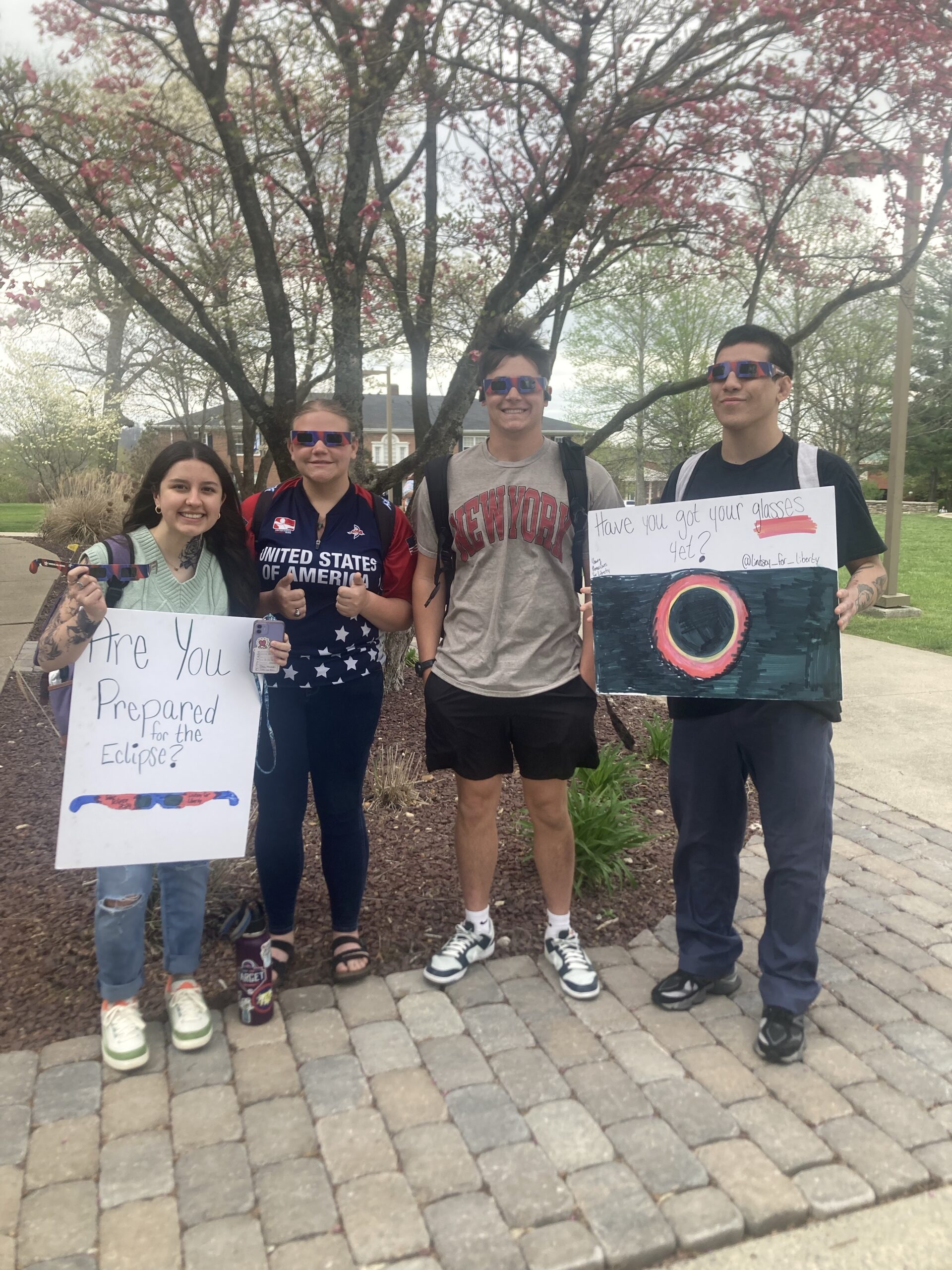Traditionally, college students venture down to the warm climate and sunny beaches of Cancun, Mexico for a vacation with friends.
For twenty-three CFACT student activists though, this trip was anything but.
Spending five days in Cancun, from January 8th through the 13th, these students participated in CFACT’s 13th Annual Eco-Summit, participating in a wide-range of lectures, workshops, and mission efforts directed at helping those in need.
Rain and Introductions
The week began with students flying in from schools all over the USA, from New York west to California, and Louisiana north to Minnesota. Fortunately for many of the participants, refuge was found in the warm humidity once they landed, leaving behind the polar vortex setting record cold temps.
Despite the warm weather, the students were immediately faced with an uncooperative sky, as rain would consistently fall over the next few days.
After a tumultuous wait at customs and a brief van ride to the hotel, the conference followed shortly thereafter, beginning with an introduction by National Collegians Director, Bill Gilles.
Gilles introduced everyone to the Summit and began laying out the rigorous itinerary for the week ahead.
Craig Rucker, CFACT’s Executive Director, followed with a short speech on the purpose and origins behind CFACT and why its message is so important. With a focus on free markets and sound science, Rucker laid out the foundation the subsequent speakers would address.
Lastly, as the students finished up their dinner and first evening, Duggan Flanakin, the Director of Policy Research for CFACT, spoke on “3rd World Development;” a prelude to the following day’s activities.
Into The Yucatan
Educational workshops filled the mornings of the Summit, as members of the staff began working directly with the students to discuss campus strategy and chapter development. Topics included recruitment, financing, and event planning; the core fundamentals to any student organization.
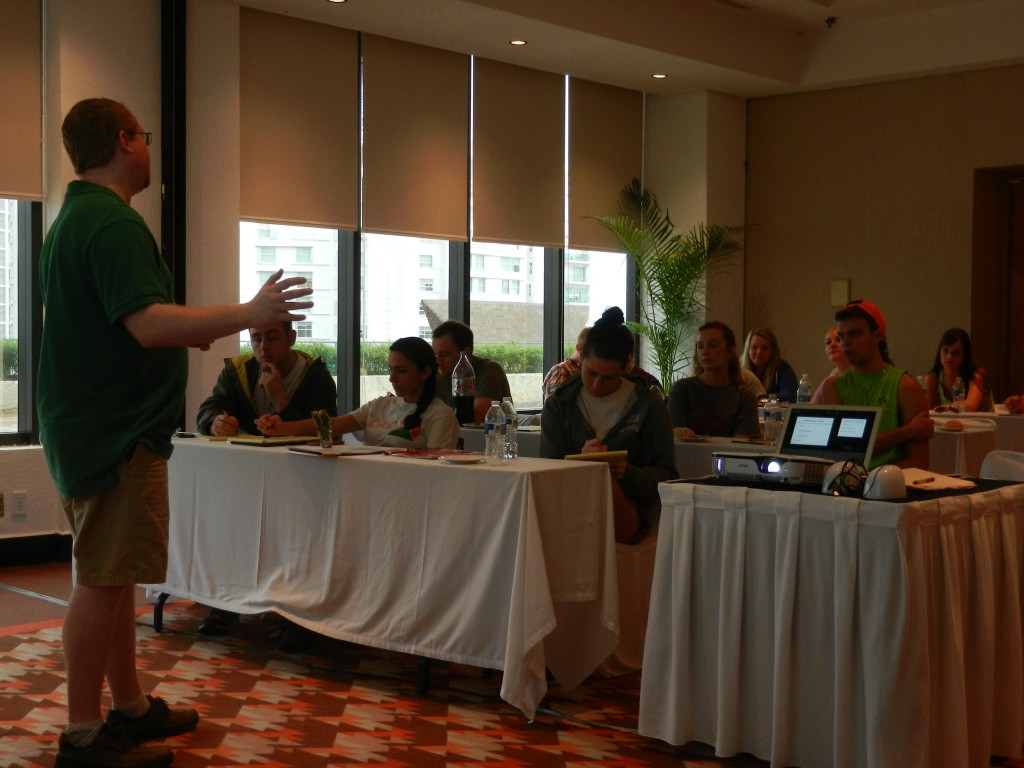
National Director Bill Gilles discusses finance and chapter growth during the first morning session of the week.
Emily Johnson, a sophomore from Tulane University noted, “The morning workshops taught me so much about how to grow my organization. I will be able to apply those skills not only to my campus, but I will use them throughout my life as well.”
When college students typically travel to Cancun for fun and mischief, they often remain secluded in the comfortable confines of the Zona Hotelera – the “Hotel Zone.” For the CFACT coalition however, following a quick lunch they got into the vans and set out for the Yucatan region near Valle Verde; to a substance abuse center in need of rehabilitation.
The center, which focuses on various vice addictions, became a second home to the students in Cancun, as they spent the next three afternoons working on projects to help the center become a more self-sustaining community.
Based on interests and capabilities, the students divided into groups to discuss their plans and materials needed for their respective project.
The projects included:
- Cleaning and painting the interior and exterior of several of the center’s buildings, providing for a more welcoming environment.
- Building a chicken roost that would allow production of eggs and an increase in the food supply for the shelter.
- Designing and constructing a drainage system, and installing a cistern that would funnel rainwater from the roof, for use throughout the facility.
- Building garden boxes in the previously broken patio to grow fruits and vegetables.
That evening, back in the hotel’s conference center, the students heard from Paul Driessen, notable author and CFACT Senior Policy Advisor, on his book, “Environmental Imperialism”, and how the radical environmental activists have attempted to hijack this issue and dissuade debate.
Many noted after the talk on how unfairly they thought the radicals treated the issue and expressed anger over obtuse regulations, firing them up for the several days ahead.
James Ward, of Syracuse University, was astounded that, “The EPA and environmental activists use faulty science to push a big government agenda. They claim that big government is the solution no matter how many businesses are lost or how much money is spent.”
Delays Plague Project Progress
The morning session comprised of breakfast and a variety of workshops continuing the education of the students on effective campus activism. This time, however, the focus was on ideas and student-led breakout sessions.
Workshops on audiovisual techniques, social media, press releases, coalition building, and other forms of activism were taught, allowing each student to begin discussing ideas for the year ahead.
The sun began to peek out of the dreary clouds by the end of the morning session, promising a productive afternoon working on the various projects designed the day before.
Sunshine proved to be a false metaphor for the day though, as the supplies and materials needed to move forward with the projects were delayed by hours, stalling most work.
Questions then began to arise as to whether the students would be able to complete all the required tasks they had laid out for the week. After doing all that could be done with the available tools and resources, the materials still had not shown and the group began the trek back to the hotel.
The trip was not all work though, as the students finally had the opportunity to enjoy the warm weather, thanks to a cooperative sky and recently discovered rooftop pool overlooking the vast ocean. They would spend most free afternoons here, while others took the time to explore the beach.
This much-needed break allowed the students to forget about the day of frustration and focus instead on the evening’s lectures.
The first, a deep course in the “Science of Global Warming” by Dr. Roy Spencer, set forth what the actual facts of the debate are and unveiled how distorted the radical environmentalists’ “facts” have become. Rucker closed the evening on a lighter note with another evening address, this time discussing CFACT’s international efforts, including many humorous stories shared about raiding Greenpeace ships and jumping out of planes in South Africa.
Tulum or Bust
Due to the delayed arrival of materials for the designed projects out in Valle Verde, Saturday’s intended plans of spending all day in the southern part of Mexico’s peninsula at Chizen Itza or Tulum was put on hold.
The morning was spent working on the projects, with each slowly starting to come together as the ordered materials at long last arrived.
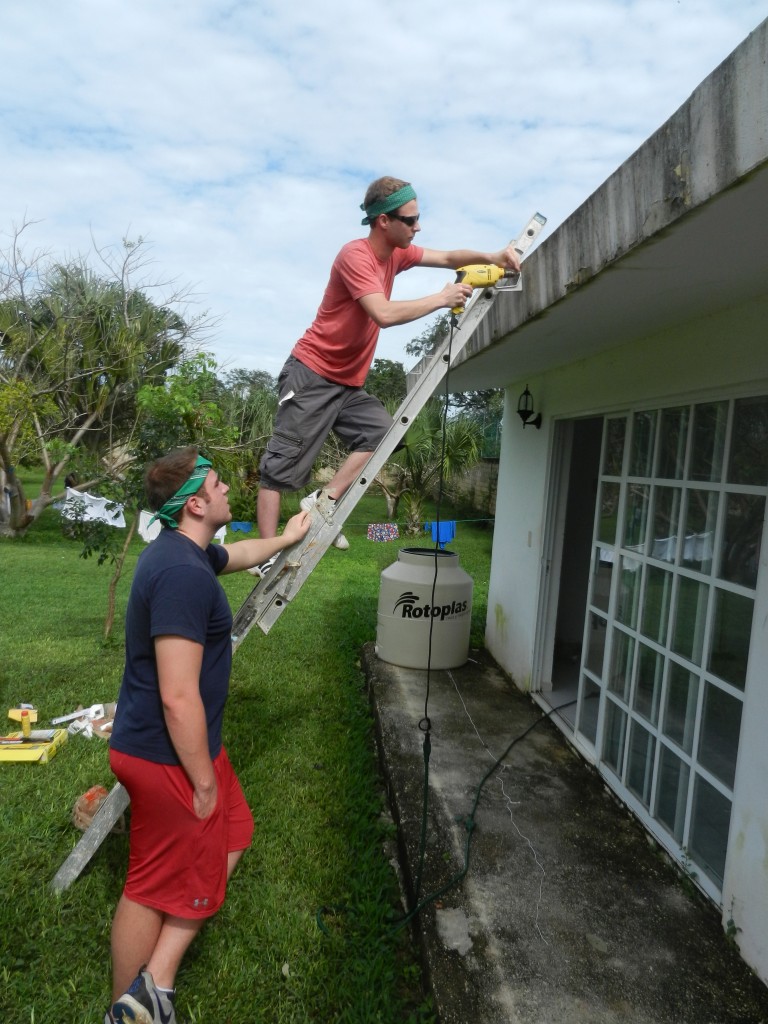
Students work to install the gutter system, one of the initial steps to building an effective cistern.
Krista Lopez, a student at UC-Irvine, found the silver lining, saying “Our materials arrived late, but that gave us the opportunity to speak to the residents.”
In the afternoon, half of the student group headed down to Tulum to see the renowned beaches and famous ancient ruins.
One female student, Jordan Collis of Georgia St., was thrilled at the opportunity to see the ruins. She said it was “an absolutely gorgeous sight to see, but also very meaningful to read about how the ruins are sacred. I’ve been to Mexico before, but going to Tulum taught me a whole new appreciation.”
In the evening, with another incredible dinner buffet showcasing the various regions of Mexican cuisine, a lecture was given on the EPA and their continued assault on coal production. With plans to cut off the coal industry entirely within the coming years, outrage was evident among the students at such proposed policies.
Project Completion
The last day of the Summit began with a brief morning workshop, where students had the opportunity to take all that they had learned from past sessions and apply it to future chapter plans at select schools. Using Georgia St., St. Thomas, SUNY-Albany, and the University of Minnesota as example chapters, the small groups came up with plans designed to grow student interest, increase membership, and plan large events.
Following these group breakouts, students hopped in the van for one more venture out to Valle Verde to finish their projects. Because this was the last day and the delay in the shipping of materials set the timeline back, each student had to give a dedicated effort to finishing their assignments.
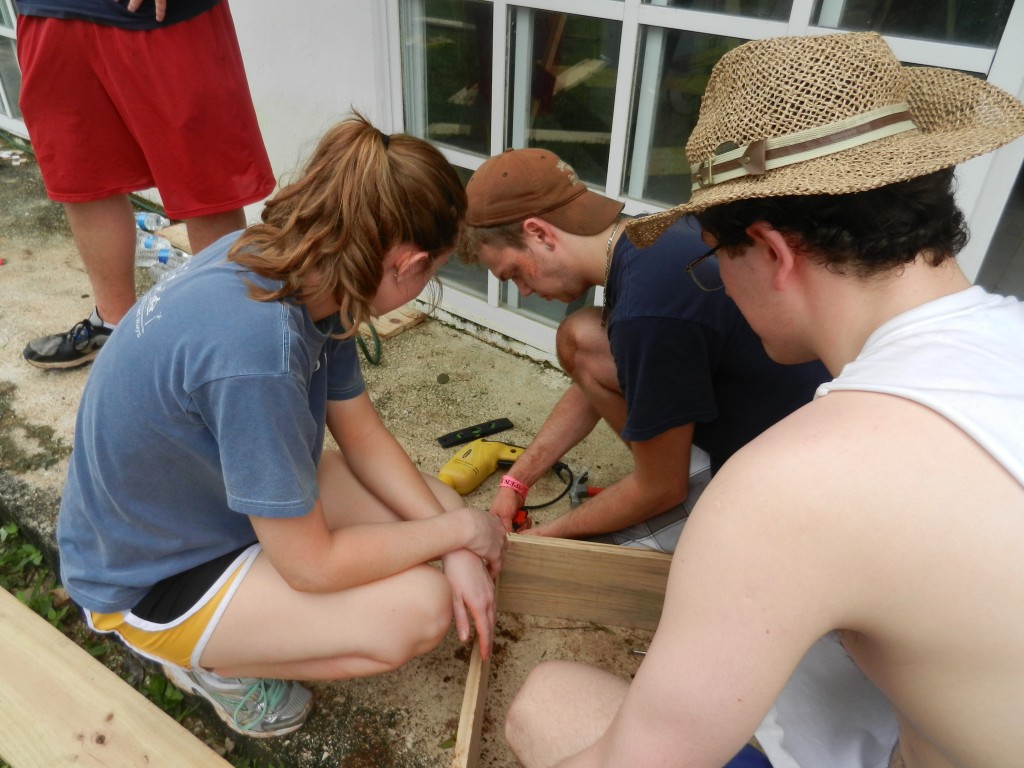
The “garden box” crew works hard to build sturdy boxes that will serve as home to a new variety of vegetables for the residents.
The group worked furiously throughout the afternoon, helping other projects out where they could. The only break taken throughout the day was to enjoy a lunch of mole, graciously made by the current residents of the center.
Hearing about some of their stories offered insight into the much deeper meaning behind building cisterns and a chicken roost; these students are helping a willing group of individuals fighting addictive urges, wanting to be “better family men,” as one noted.
At the end of the afternoon, what previously stood as a facility that struggled to sustain itself now featured a fully-functioning water cistern, trapping rainwater for use throughout the center; four wooden garden boxes with proper filtration and fresh soil; a custom built chicken roost, allowing for the full utilization of the livestock available to them; and a fresh, clean coat of paint throughout.
Christina Ellis, a student at the University of Minnesota, noted, “Upon conclusion of the projects, there was a sense of accomplishment from leaving a new start for the men at Program de Homme. The tasks were completed in only one week but the sustainable outcomes will mean more opportunity for the organization long term.”
The last of the Summit’s programming featured a dinner with guest speaker, Karen Moreau. Moreau serves as a leading voice for natural gas production in New York, and Skyped in to address the students.
She centered her talk on the practice of extracting natural gas deep below the ground surface and how safe it actually is, despite the unfounded warnings of select environmentalists.
Adios y Gracias
Facing perhaps the sunniest day of the week, the students begrudgingly packed their bags, loaded up in the vans, and headed back to the airport. Although most were sad to be leaving the ocean-view accommodations for the brutal winter that waited, they left with an impassioned drive to continue fighting the false notions of the radical environmentalists and making a difference in the campus debate.
Their time in Cancun allowed each student to grow, not only in their wealth of knowledge on how to be effective student activists, but also on the understanding of how important energy freedom, property rights, and a free market are to areas of need. Through those practices can Valle Verde, and its member communities, enjoy the same comforts and privileges we, as Americans, seemingly take for granted every day.
